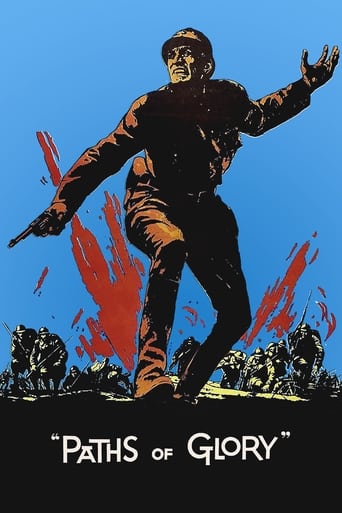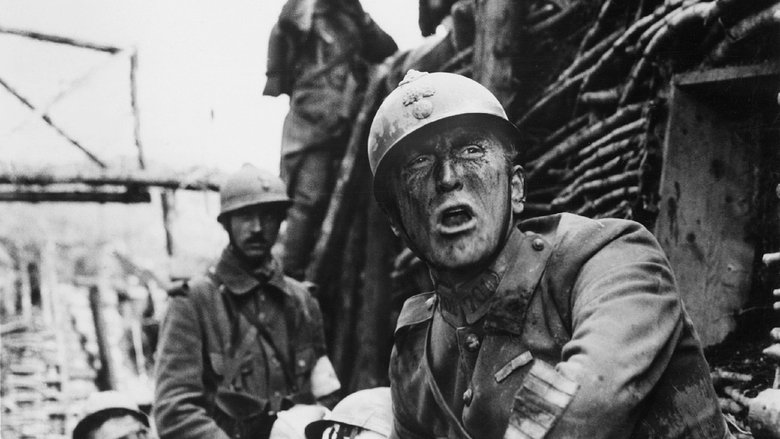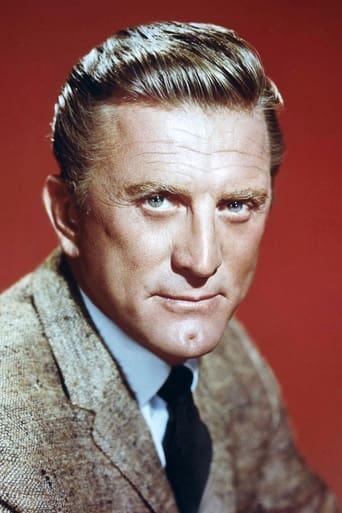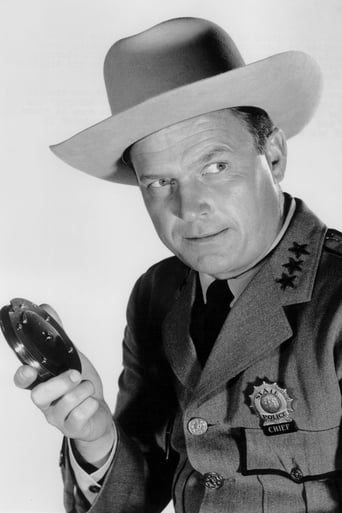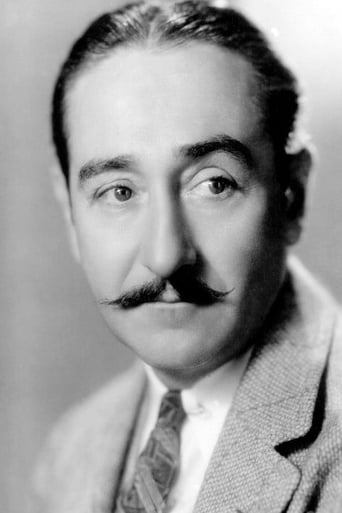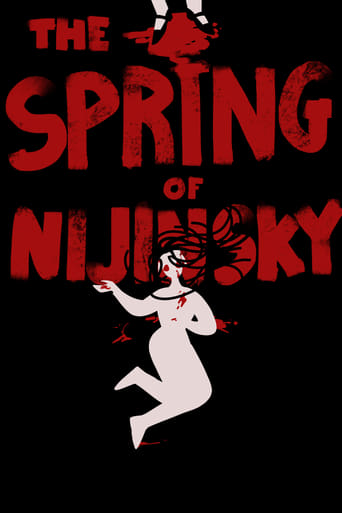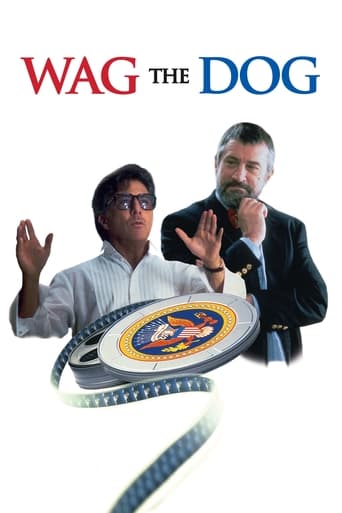Paths of Glory (1957)
A commanding officer defends three scapegoats on trial for a failed offensive that occurred within the French Army in 1916.
Watch Trailer
Free Trial Channels
Cast


Similar titles
Reviews
Surprisingly incoherent and boring
Plot so thin, it passes unnoticed.
I am only giving this movie a 1 for the great cast, though I can't imagine what any of them were thinking. This movie was horrible
The story, direction, characters, and writing/dialogue is akin to taking a tranquilizer shot to the neck, but everything else was so well done.
After refusing to attack an enemy position, a general accuses the soldiers of cowardice and their commanding officer must defend them. Paths of Glory is a 1957 War film starring Kirk Douglas and it's directed by Stanley Kubrick. Now this movie is no Metal Jacket and why should it be? It was made in 1957 and not 1987 and it makes sense of being old and black and white and believe me it works on it's favor. The acting is really good especially from Douglas, the movie as a whole is well structued with very good cinematography and excellent close ups and war sequences. It's no 'Saving Private Ryan' but it's a movie that is very watchable and just interesting as a whole. (10/10) (B+)
This movie sped by - was it rushed or was I enthralled? Whatever, it captures the politics of war beautifully and it's the fighting man who is expendable. SPOILER Why is Broulard prepared to mount a case with all the ensuing publicity against Mireau? Dax seemed surprised too. Broulard didn't do it out of any sense of guilt or fairness as he makes clear in his final speech to Dax ("the village idiot"). This movie can be compared to Ray's Bitter Victory which I preferred for its non-literal treatment.
The film begins with a voice-over describing the trench warfare situation of World War I up to 1916. In a château, General Georges Broulard (Adolphe Menjou), a member of the French General Staff, asks his subordinate, the ambitious General Mireau (George Macready), to send his division on a suicide mission to take a well-defended German position called the "Anthill." Mireau initially refuses, citing the impossibility of success and the danger to his beloved soldiers, but when Broulard mentions a potential promotion, Mireau quickly convinces himself the attack will succeed.Mireau proceeds to walk through the trenches, asking several soldiers, "Ready to kill more Germans?" He throws a disturbed private (Fred Bell) out of the regiment for showing signs of shell shock, which Mireau considers simple cowardice. Mireau leaves the detailed planning of the attack to the 701's Régiment Colonel Dax (Kirk Douglas), despite Dax's protests that the only result of the attack will be to weaken the French Army with heavy losses for no benefit.During a nighttime scouting mission prior to the attack, a drunken lieutenant named Roget (Wayne Morris) sends one of his two men ahead as a scout. Overcome by fear while waiting for the scout's return, he lobs a grenade and retreats. The other soldier—Corporal Paris (Ralph Meeker)— finds the body of the scout, killed by the grenade. Having safely returned, he confronts Roget, but Roget denies any wrongdoing, and falsifies his report to Colonel Dax.The next morning, the attack on the Anthill proceeds.
Although "Paths of Glory" certainly makes a powerful statement about the horror, misery, and insanity of war, specifically the hellish conditions of the World War I trenches, its even broader theme concerns the arrogant abuse of power by severely flawed and incompetent individuals who occupy positions of authority. After forty years of working in the government and corporate world, I have painfully learned through much despair and frustration that the abuse of power by total imbeciles is by no means limited to the French Army during World War I.The movie centers on the demand by "the powers that be" for Colonel Dax (Kirk Douglas) and his men to "take the anthill no later than the day after tomorrow", and the generals don't want to hear any "ifs, ands, or buts" about it. From the response of Dax, who seems able, serious, and reasonable, and from those of other officers on the ground, we soon realize that the demand of the distant and detached generals is all but impossible under the current conditions on the battlefield. The generals have barked their orders but seem to be totally clueless as to the suicidal nature of the mission. They dine and dance in palatial magnificence as far away as possible from the difficult and inhuman conditions of the foul and filthy trenches, and then break for a few minutes to plan for the sure slaughter of their own subordinates without the slightest consideration for the disastrous impact of their decisions upon the very lives of other human beings.Filmed in stark black and white, Kubrick very ably recreates the unbearable and terrifying conditions of the World War I trenches unlike any other film that I have ever seen. As Colonel Dax rushes through his weary and injured troops, who line both sides of the narrow, fortified passages, a constant barrage of enemy explosions and whizzing missiles physically and psychologically overwhelms them from all sides. What could Dax be thinking and feeling as he is about to lead his men beyond the trenches into an even worse hell of the open battlefield and toward the anthill beyond? We observe an undeniable look of terror in his face that is camouflaged by the strength and determination necessary to lead in battle. To me, this sequence is one of those very special moments in cinema, and, as to its intensity of feeling, who could deliver it better than Kirk Douglas? When the predictable outcome of the mission is reported to the distant generals as soon as they can somehow find a moment to break from their perpetual partying, imbibing, and gorging, they decide to scapegoat one individual from each of the three companies for a court martial trial. Corporal Paris (Ralph Meeker) is conveniently selected by his cowardly lieutenant only because he witnessed the same superior officer killing a subordinate in order to escape from a dangerous assignment, therefore conveniently avoiding his own court martial trial. Private Arnaud (Joe Turkel) is selected merely at random. Private Fierol (Timothy Carey) is chosen only because his superior took a personal disliking to him as a "social outcast". "Me a social outcast?" Fierol asks in outrage and disbelief. As in "The Killing", Carey is a special kind of an actor who portrays his characters so realistically that you feel as though you've met this guy somewhere, but you can't recall exactly when or where. It was somewhere though, probably high school homeroom.Rather than revealing the results of the trial, I'll skip to the final scene in which Dax's remaining troops are celebrating their miraculous survival at a local bar. The proprietor introduces a very reluctant, captured German girl (Christina Kubrick), who is forced to perform before the rowdy and raucous group. As she slowly begins to sing her sad and melancholy German folk tune, the camera shifts to the individual faces of some of the men who have suddenly quieted down as they listen to the girl's haunting song. The music of the terrified, tearful girl somehow compels them to stop their noisy celebration and to focus instead on their own inner thoughts, perhaps of the girls they left behind or of the lives which they so precariously still manage to maintain. The men then start humming to the girl's nostalgic song as she finally succeeds in composing herself on the stage. The camera then shifts to Colonel Dax who has paused in front of the bar to listen to the singing men, absorbed in his own most private thoughts. A sergeant arrives to tell Dax that his men must prepare to return to battle. "Give the men a few more minutes," replies Dax. And what a precious few minutes they are.

